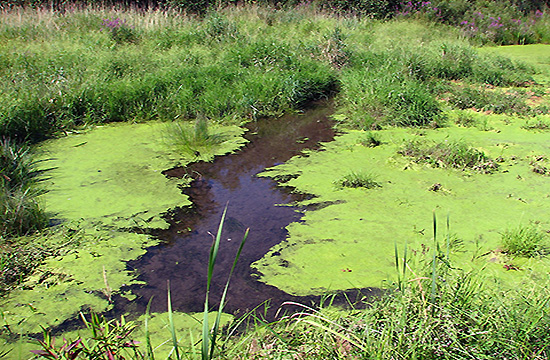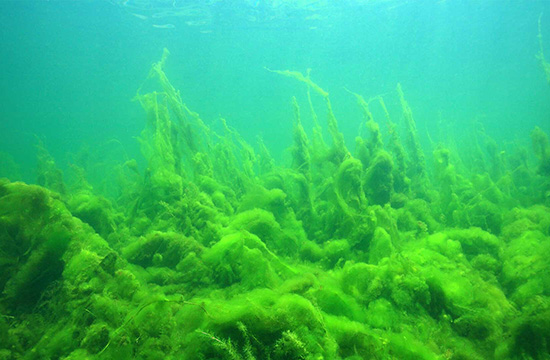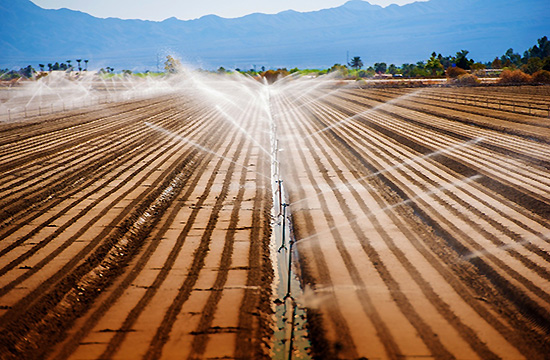
Eutrophication is a significant environmental issue caused by the over-enrichment of water with nutrients, primarily nitrogen and phosphorus, due to human activities. This process leads to excessive phytoplankton and macroalgal growth, reducing light penetration and causing a loss of submerged aquatic vegetation.
Eutrophication is a leading cause of water quality impairment in freshwater and marine ecosystems.
The expansion of agriculture has led to large-scale modifications of landscapes and seascapes, altering nutrient cycles and fueling primary production.This has resulted in widespread eutrophication of inland and coastal waters, driving changes in trophic structure, and the development of low dissolved oxygen or hypoxia in bottom waters at global scales.
Agricultural runoff is directly linked to the development of hypoxic zones.


Eutrophication has caused long-term changes in ecosystems, affecting the composition of phytoplankton communities, the demise of benthic components, shifts in sedimentary structure, and biogeochemical processes.
It has also contributed to habitat destruction, invasive species, and global climate change, altering how mobile organisms utilize space and move through systems.
Aquaculture has shown trends in mitigating the effects of agricultural pollution through practices such as multiculture or polyculture, movement into offshore waters, and the restoration of filter-feeding bivalve populations.
These practices aim to lessen environmental impacts, maximize economic and social profit, and reduce hypoxia by sequestering nutrients and organic matter in bivalve biomass.


The future challenge lies in integrating agriculture and aquaculture management to address the multiple needs of humans while protecting ecosystem services and functions.
Efforts are needed to control and reverse the adverse effects of agriculture on ecosystem services, reduce nutrient loads reaching coastal systems, and develop institutions capable of integrating different sectors with shared goals to feed people while protecting the environment.

